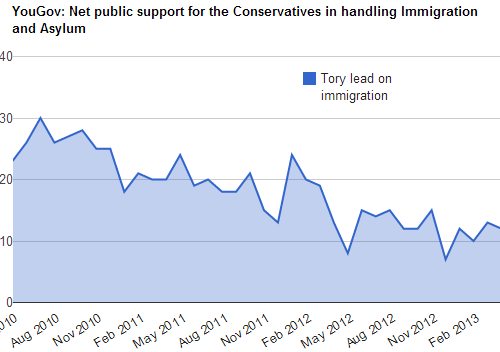Monty Python famously had a Ministry of Silly Walks. Sometimes it starts to look like David Cameron is running a Ministry for Silly, Stupid and Downright Dangerous Ideas. The latest of these to be floated* by the Conservative Policy Forum is to limit the number of GP visits individuals are entitled to on an annual basis.
Another way of phrasing this would be “penalise people who are sick a lot”.
Here are ten sets of circumstances in which this could lead to, well, death, among other issues.
1. Currently the people who make the most appointments are the elderly. If older people feel that they’re a burden, especially with long term conditions like high blood pressure, they won’t seek help. Thousands of elderly people, including my grandma, already fail to spot and report conditions like pneumonia and minor strokes.
2. People with long-term medical conditions that affect their immune system. AIDS is an obvious one, people taking immuno-suppressant medication after organ transplant is another. These people need to be vigilant in reporting any minor illness to their GP.
3. Patients with multiple interacting conditions. For example Crone’s Disease sufferers may not be able to readily absorb medicines given for other conditions so may need repeated visits to adjust the dosage.
4. People with minor symptoms of potentially serious conditions. Charities addressing conditions like bowel cancer are forever telling people to go to their GP if they spot blood in their stool or seem to be losing weight for no reason. Knowing there’s a limit on visits is surely going to encourage people to wait longer before raising these apparently small issues.
5. Similarly new parents with sickly kids may visit doctors multiple times over fairly small issues, it’s natural for new parents to be over-cautious. Discouraged from making frequent visits serious conditions like meningitis could be missed.
6. Those who suffer from mental health problems are also put at risk. This is another group of people who use more GP visits than average at present. Mental health conditions can’t be treated in a one-off way, they’re long-term and need monitoring and a variety of approaches tried to tackle them. Refusing to treat such patients would inevitably lead to deaths from anorexia and suicide.
7. People feeling unwell who have already “used up” their allocated number of visits may resort to borrowing a friend’s ID to speak to a doctor. Faced with the wrong set of medical records doctors may prescribe medicines that are dangerous for the patient.
8. People with sudden emergency medical problems – car crash victims, heart attacks, epilepsy sufferers, are placed at greater risk because Accident and Emergency rooms are suddenly clogged up with people who’ve run out of GP appointments to use.
9. Young people visiting their GP to discuss sexual health issues in confidence. What will happen when they are unwell and their parents or carers suggest they see their GP? How will they explain they have fewer appointments left to use? This breeches their right to confidentiality and risks encouraging them to lie and avoid medical attention.
10. People who are unhappy with the care they’ve received from their GP. Everyone’s entitled to seek a second opinion. A simple example would be a woman who’s doctor refuses to refer her for a termination. If you happen to live in an area where high numbers of doctors are unwilling to help women seeking abortion, you could end up using up all your remaining appointments without getting the referral you need. Or a victim of rape or assault who wants to try different professionals until they find one they are comfortable talking to.
But I guess what Cameron and his team are trying to build is a health service that works perfectly well for everyone except the old, children, the sick, parents, the poor, young people, people with mental health problems, people with sexual health problems, and victims of car crashes, cancer, meningitis, stroke, heart attack, epilepsy, AIDS, Crone’s Disease, crisis pregnancy, rape and assault.
In short there are millions of people who might need to see their GP more often than an arbitrary number of times in a given year. Actually I’m one of them. Sometimes I feel I should get reward points I’m there so often. Over the last couple of years I’ve found about six lumps in my breasts. Each time the doctor asks me to make a couple of repeat appointments so she can check if the lump is temporary or changing, each time I get referred to the local hospital for an MRI and sometimes a biopsy. So far the diagnosis is that I have “dense breast tissue”. This may explain why the published political opinions of The Sun’s page three models never seem all that insightful, but it’s nothing to worry about.
What my doctor has never told me is “hey, if you find another lump – just ignore it”.
There’s a petition you can sign online on this issue. https://secure.38degrees.org.uk/page/s/dont-cap-GP-visits












